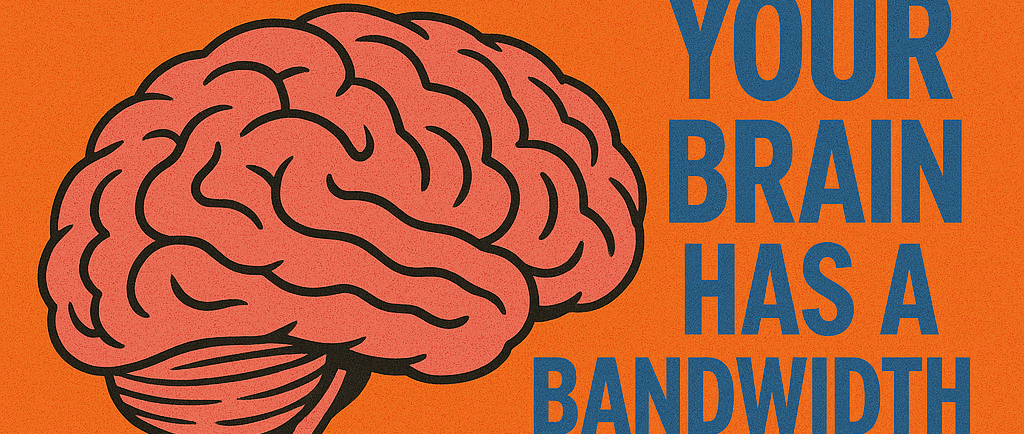Your Brain Has a Bandwidth Limit—Use It Wisely
Kamy Charles
8/13/20252 min read


The Neuroscience of Focus in a Multitasking World
In a world that celebrates “hustle” and “always-on” work culture, it’s easy to believe that doing more at once means getting more done. But neuroscience says otherwise: your brain has a hard limit on how much it can process at any given moment.
---
Why Multitasking Isn’t Real
When you think you’re multitasking, you’re actually task-switching—rapidly shifting your attention between tasks.
Every switch burns mental energy and degrades performance.
Research from Stanford University found that chronic multitaskers:
Struggle to filter out irrelevant information.
Have reduced working memory capacity.
Are slower at switching between tasks compared to those who focus on one thing at a time.
---
The Energy Cost of Constant Switching
Each time you switch tasks, your brain must “re-load” context—kind of like opening too many tabs on your computer and watching it slow to a crawl.
The more often you switch, the more cognitive fatigue builds up. By the end of the day, you’re mentally exhausted without necessarily having accomplished your most important work.
---
How to Work With Your Brain’s Limits (Not Against Them)
1. Identify Your MIT (Most Important Task)
Each morning, decide what’s most impactful for the day. That task gets your peak mental energy.
2. Block Time for Deep Work
Use 60–90 minute sprints with zero interruptions—no notifications, no email checks, no quick “just one thing” distractions.
3. Batch Your Shallow Work
Group emails, quick calls, and admin tasks into dedicated blocks so they don’t interrupt focus time.
4. Protect Recovery Time
Short breaks aren’t a luxury—they’re neurological maintenance. Step away, walk, stretch, or rest your eyes to reset your cognitive load.
---
The Business Case for Focus
In today’s economy, adaptability and execution speed win—but only if your thinking is sharp. Professionals who guard their mental bandwidth deliver higher quality work, make better decisions, and avoid burnout.
Bottom line: Your brain is your most valuable professional asset. Treat it like prime real estate, not an open floor plan.
---
💡 Challenge for You: Tomorrow morning, pick one task that would make the day a win if you did nothing else. Give it your undivided attention. Watch how much more you get done by doing less at once.
